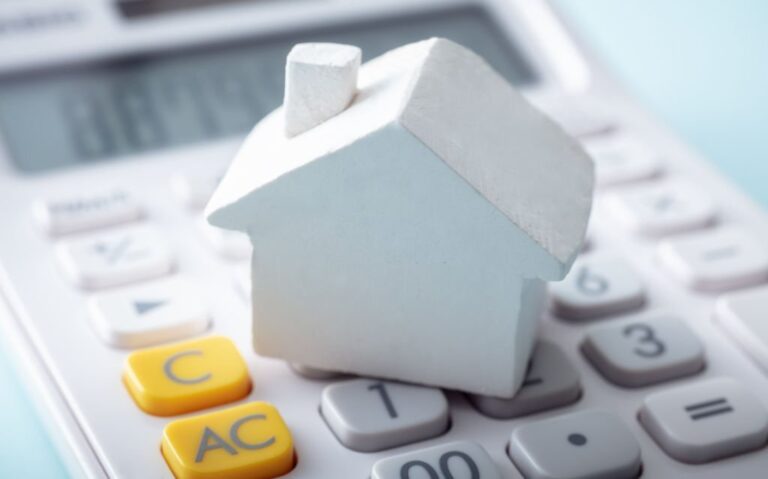As a homeowner or potential buyer, understanding the factors influencing home value is crucial. The value of a home determines its worth in the market and can have significant financial implications. In this article, we will explore the key factors that affect home value, providing you with valuable insights to make informed real estate decisions.
The Most Important Factors in Real Estate
Location: plays a pivotal role in determining a home’s value. Proximity to essential amenities such as schools, employment opportunities, shopping centers, recreational facilities, and public transit significantly impacts a property’s desirability and, consequently, its value. Homes situated in prime locations tend to command higher prices due to the convenience and quality of life they offer.
Proximity to schools, employment opportunities, shopping centers, recreational facilities, and public transit: These factors are attractive to homebuyers as they enhance accessibility, convenience, and lifestyle opportunities. Homes located in close proximity to these amenities tend to have higher value.
Neighborhood Comps
Neighborhood comparables, commonly referred to as “comps,” are an essential indicator of a home’s value. They involve analyzing the sale prices of similar homes in the same neighborhood that have recently been sold. Comparing these comps helps assess the fair market value of a property.
- Comparable sales as indicators of a home’s value: Real estate experts, appraisers, and agents rely on comps to estimate a home’s value. These comparable homes should share similarities in terms of location, size, features, age, and other relevant factors.
- Factors considered in comps: When selecting comps, certain criteria are taken into account. These include the recency of the sale, feature similarity, distance to the subject property, and the unique placement of the home, such as a waterfront or golf course view.
Factors That Create the Value of the Property
Understanding the factors that contribute to the value of a property is essential for both buyers and sellers in the real estate market. Various elements influence a property’s worth, including market demand, property features and amenities, age and upgrades, and market conditions. In this article, we will delve into these factors, exploring their impact on real estate value and the significance of location, condition, and upgrades, as well as size and usable space.
Market Demand
Market demand is a crucial determinant of property value, driven by factors such as population growth, job opportunities, and lifestyle amenities. As a region experiences population growth and an increase in job opportunities, the demand for housing rises. Additionally, the presence of desirable amenities, such as parks, shopping centers, and entertainment options, can significantly impact the value of properties in a given area.
Influence of population growth, job opportunities, and lifestyle amenities: These factors create a higher demand for housing, leading to increased property values. Growing populations and a vibrant local economy contribute to the attractiveness and desirability of a location.
Property Features and Amenities
The features and amenities of a property play a significant role in determining its value. Desirable features and amenities can increase the desirability and attractiveness of a home, thereby positively impacting its value. Such features include modern kitchens, updated bathrooms, energy-efficient appliances, and outdoor living spaces.
Impact of desirable features and amenities on home value: Homes with sought-after features and amenities tend to command higher prices in the market. These features enhance the comfort, functionality, and overall appeal of a property, making it more valuable to potential buyers.

Age and Upgrades
The age of a property and the presence of necessary upgrades are important considerations when assessing its value. Older homes may require maintenance, repairs, or upgrades to remain competitive in the market. Upgrades such as a new roof updated electrical systems, or renovated interior spaces can increase a home’s value and appeal.
Considerations regarding older homes and necessary upgrades: Aging homes may need investments to improve their condition and bring them up to modern standards. Upgrades and renovations can enhance a property’s value by making it more attractive, functional, and energy-efficient.
Market Conditions
The overall market conditions significantly influence the value of properties. Economic factors, supply and demand dynamics, and local market trends all play a role in shaping property values. Understanding these conditions is crucial for making informed decisions in real estate.
Influence of economic conditions, supply, and demand dynamics, and local market trends: Economic indicators, such as GDP growth, employment data, and manufacturing activity, can impact the real estate market. Supply and demand dynamics, influenced by factors like population growth and new construction, also affect property values. Additionally, local market trends, such as changes in housing inventory and buyer preferences, contribute to the fluctuation of property values.
Size and Usable Space
The size of a home and its usable space contribute to its overall value. Larger homes with more bedrooms, bathrooms, and functional living spaces command higher prices. Usable square footage, excluding areas like garages and unfinished basements, is significant to buyers and appraisers when assessing a property’s value.
Significance of home size, number of bedrooms and bathrooms, and usable square footage: Buyers often seek homes that meet their space requirements and offer room for growth. The size and usable space of a home influence its functionality, livability, and potential for future resale value.
Determining the value of a property involves considering various factors that can significantly impact its worth. Factors such as location, comparable sales, property features and amenities, market demand, trends, and size and usable space all play crucial roles in determining the value of a property. This article will delve into these key factors and explore their influence on property value.
Property Features, Amenities, and Upgrades
The features, amenities, and condition of a property significantly impact its value. Desirable features, such as modern kitchens, updated bathrooms, and well-maintained conditions, increase a property’s appeal and overall worth. Upgrades and renovations, including kitchen and bathroom remodels, can also positively affect property values.
Impact of desirable features, amenities, and well-maintained condition: Properties with attractive features and amenities, along with a well-maintained condition, tend to command higher prices in the market. Upgrades and renovations can further enhance a property’s value by improving its functionality and appeal to potential buyers.
FAQ:
What are the most important factors in real estate?
Most important factors in real estate: Location, neighborhood comps, home size and usable space, and condition.
What are the factors that create the value of the property?
Factors that create property value: Market demand, property features and amenities, age and upgrades, and market conditions.
What gives a house the most value?
What gives a house the most value: Location, condition and upgrades, size and usable space, and market demand and trends.
What are the top factors that influence value?
Top factors that influence value: Location, comparable sales, property features and upgrades, market demand, and size and usable space




